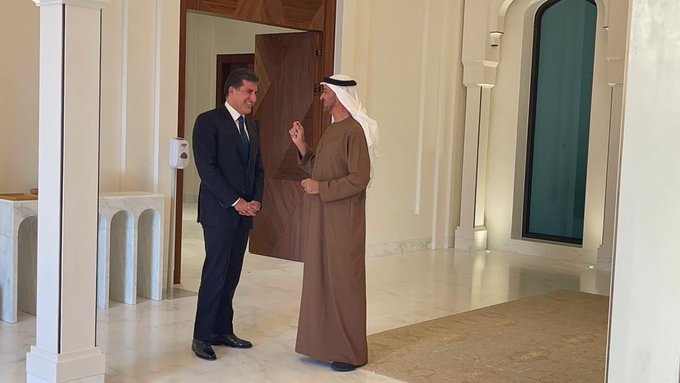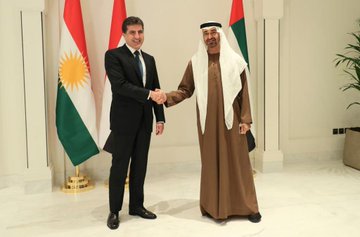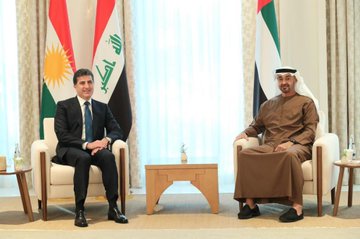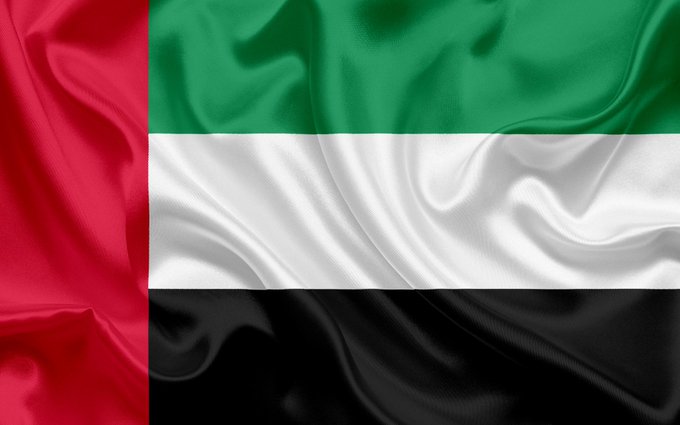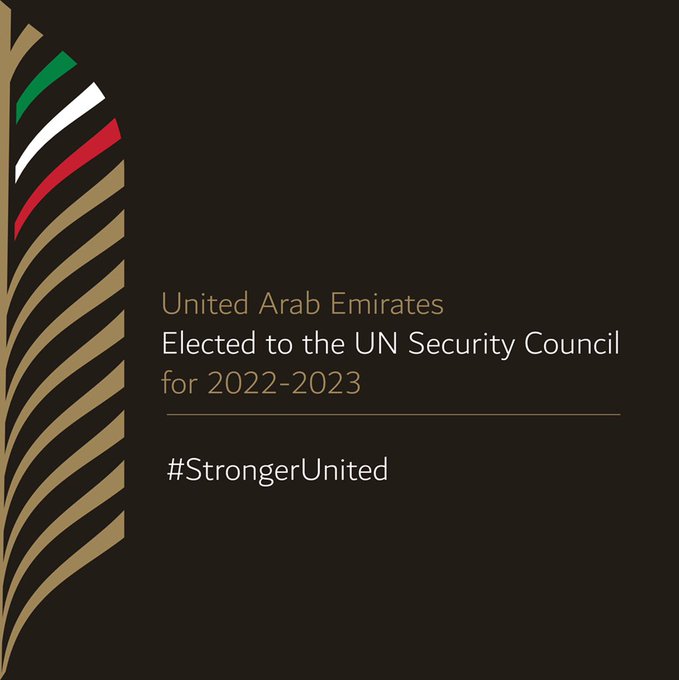Nechivran Barzani is the President of the Kurdistan Region. He Tweeted the rollowing Saturday:
The meet-up with Crown Prince Mohamed Bin Zayed of the Emirate of Abu Dhabi (part of the United Arab Emirates) took place on day after the UAE was elected by the United Nations General Assembly to the UN Security Council for a two-year term.
The UN Security Council has five permanent members: the US, the UK, China, Russia and France. The five permanent members have veto power (among other powers). The number of non-permanent members, since 1965, has been ten per session. Non-permanent members of the Council do not have veto power (some would argue that they have very little power period). GULF NEWS notes, "This will only be the second time in the UAE’s history that the country holds one of the ten elected Council seats."
KURDISTAN 24 notes that the UAE's Sheikh Abdullah bin Zaved al-Nhavan received congratulations for the UAE's election from Fuad Hussein, the Foreign Affairs Minister for Iraq. Kuwait's UN Mission Tweeted:
Sarah al-Amiri is the UAE's Minister of State for Advanced Technology and she Tweeted:
The congratulations rolled in as criticism also was noted. MIDDLE EAST MONITOR notes:
The UN Special Rapporteur on the situation of human rights defenders, Mary Lawlor, has expressed her grave concern at the long-term detention of five human rights defenders in the United Arab Emirates, describing their imprisonment as arbitrary.
The five human rights activists, Mohamed Al-Mansoori, Hassan Hammad, Hadif Al-Owais, Ali Al-Kindi and Salim Al-Shahhi, are part of a group of 94 lawyers, human rights defenders and academics, called the "UAE94" group, who were sentenced to ten years in prison in July 2013 for plotting to overthrow the government.
In a statement published yesterday by the Office of the United Nations High Commissioner for Human Rights, Lawlor said that their sentences were excessive and stressed that they should never have been detained for legitimately exercising the freedoms that all people are entitled to.
Meanwhile, Iraq's various bands of thugs -- also known as militias -- are in the news.
MEHR NEWS, for example, reports:
Mohammad Mohi, Kataib Hezbollah's spokesperson stressed the need for US troops to exit Iraq and warned against attempts to infiltrate the Iraqi military.
According to Lebanese al-Mayadeen TV, Mohi called the attempts to infiltrate Iraq's military apparatuses a conspiracy in favor of the ISIL terrorist group.
The Kataib Hezbollah's spokesperson added that "If the United States does not withdraw from Iraq, it will be taken by surprise Islamist Resistance groups."
Kata’ib Hezbollah had already warned that a “tougher and stronger” confrontation awaits US forces should they defy a timetable set for their withdrawal from the Arab country.
Speaking in early November 2020, Mohi referred to a statement by the Iraqi Resistance Coordination Commission, which warned that the next stage of the resistance will soon happen, saying, “This stage may be tougher and stronger featuring new types of weapons.”
Still on this one band of thugs, ASHARQ AL-AWSAT reports:
The Kataib Hezbollah armed faction in Iraq warned the Iraqi government against repeating the arrest of prominent commanders of the pro-Iran Popular Mobilization Forces (PMF).
It also called on the government to arrest whom it described as “aggressors” in wake of the detention and eventual release of prominent PMF commander Qassim Muslih.
Muslih was arrested in late May over his suspected involvement in the killing of prominent anti-government activist Ihab al-Wazni. He was released last week after much political pressure and escalation by the PMF. Head of Iran’s Quds Force commander Esmail Qaani had also visited Baghdad last week to ease the tensions.
A spokesman for Kataib Hezbollah, known as Abou Ali al-Askari, tweeted that Muslih’s arrest in the first place was a “spiteful” move by the government.
He warned “the traitor” – a reference to Prime Minister Mustafa al-Kadhimi – against repeating such a move “otherwise we will not return to our positions before the aggressors are behind bars.”
Muslih was released after a settlement was reached between the factions and government in return to an end to the escalation. Political sources said he was freed after massive political pressure was exerted.
Threatening the prime minister of the country, calling him the sitting prime minister a traitor. Are we still pretending that the militias are under the command of the government?
